GET IN TOUCH
- Please wait...
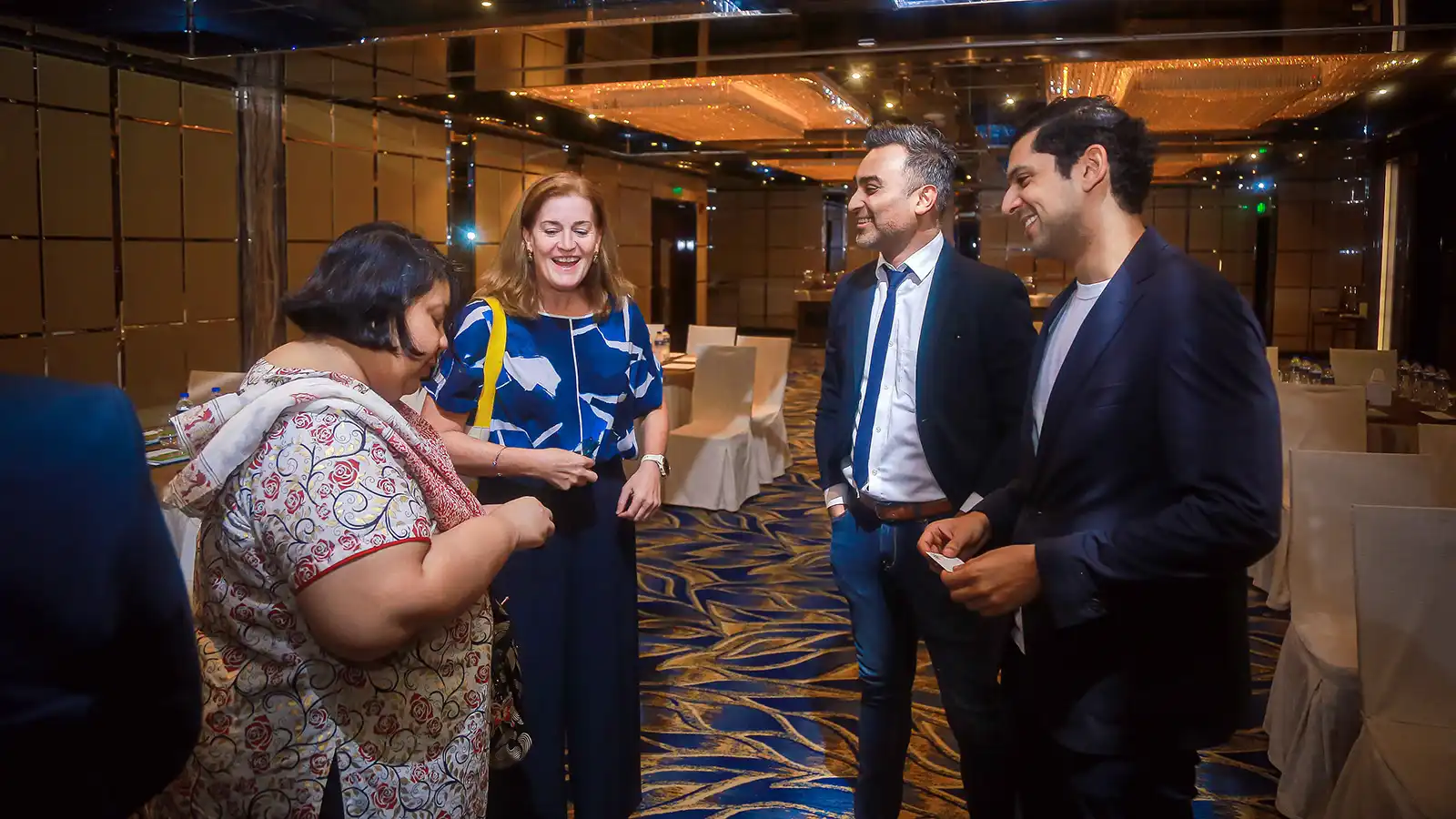
Stakeholders networking during the event
Since its launch in 2020, B-Briddhi has been promoting the evolution of impact investing in Bangladesh. But as impact investment gathers momentum in the country, how has the perception, practice, and position on impact exactly changed for investors and entrepreneurs? For a deep dive into this important topic, Biniyog Briddhi hosted a networking event in Dhaka, Bangladesh, on 29th November with 75+ ecosystem players, including 20+ investors. Here are some striking insights from some of the most notable players in the Bangladesh ecosystem about how they value the impact of their investment decisions:
Many local ecosystem players have been equipped with vocabularies and internationally accepted frameworks around how to communicate impact. But how much are they using, for example, the five dimensions from the Impact Management Project (IMP) framework? If an investor or entrepreneur is able to articulate “who” is being impacted, “what” kind of changes these people are experiencing, and “how much” is essential in distinguishing those who can generate impact effectively, they can prevent the risk of “impact washing”.
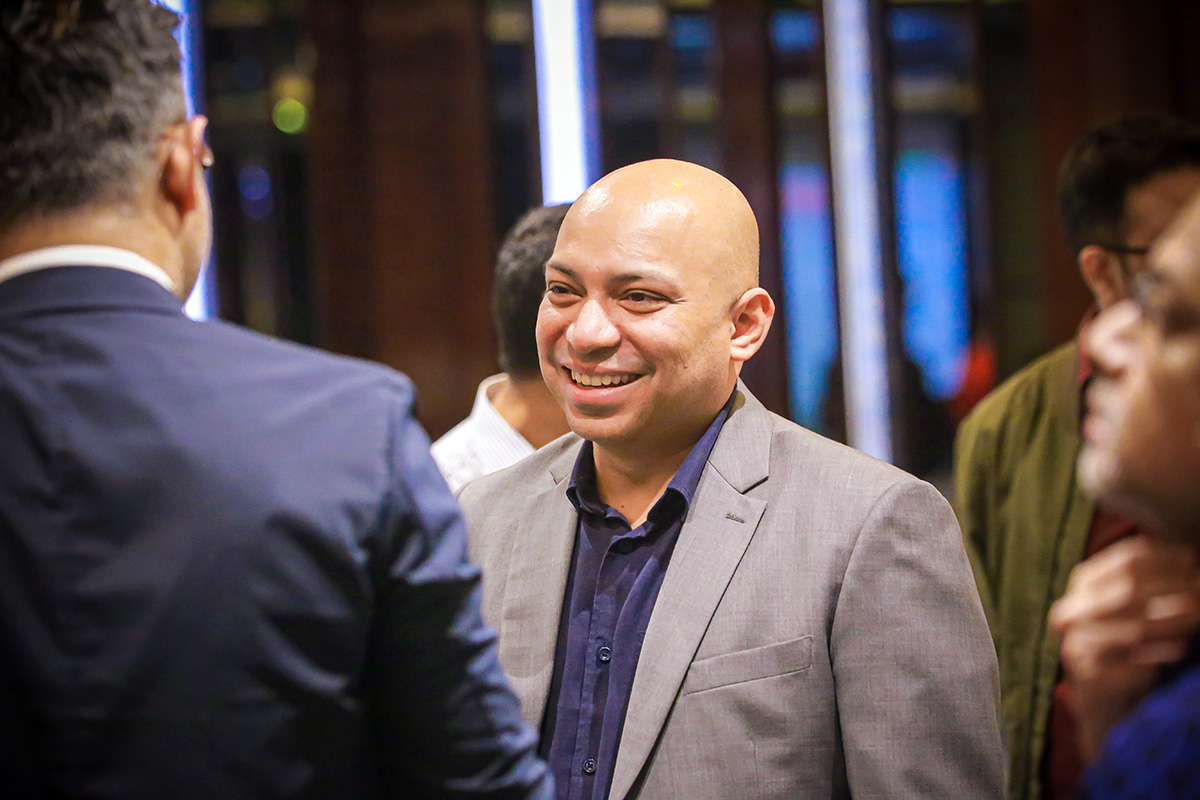
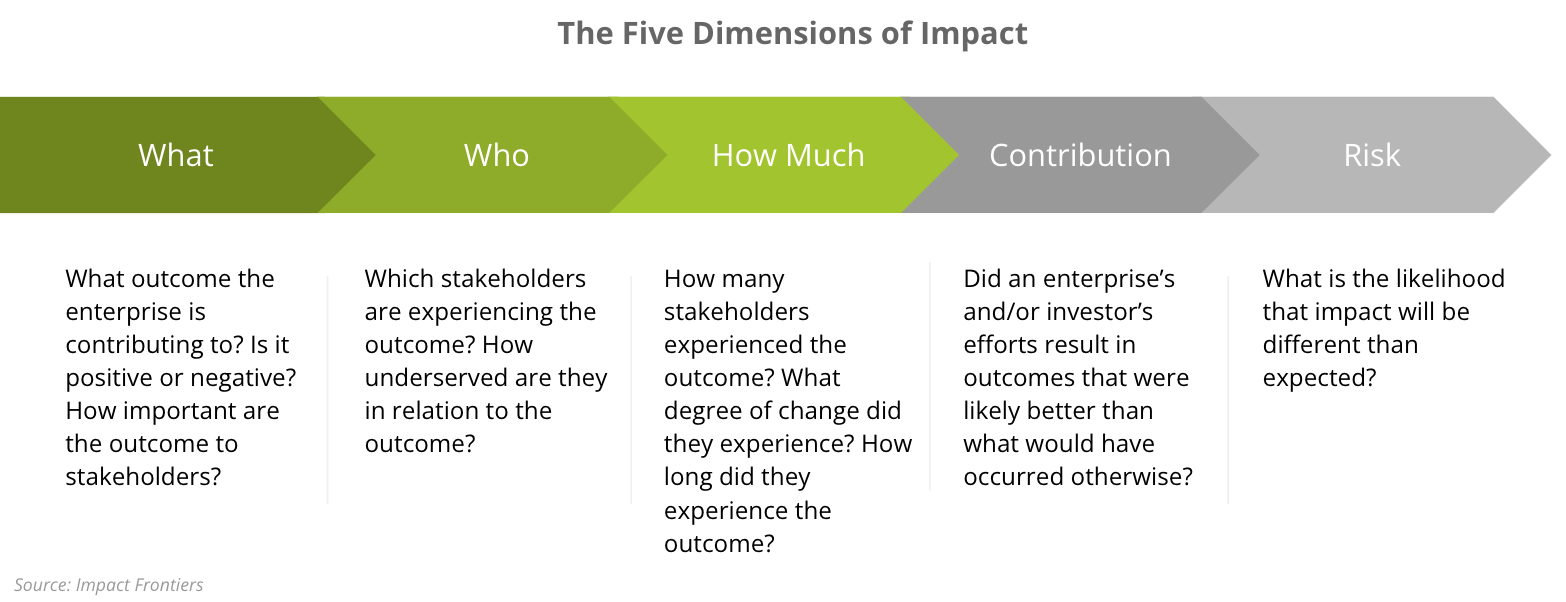
In parallel, B-Briddhi has engaged in advocacy with the National Advisory Board of Impact Investing in Bangladesh (NAB). The goal is to raise awareness of how to best-practice impact investing can be done as well as advocate for IMM regulatory frameworks that are conducive to scaling up the impact ecosystem. This advocacy cooperation has led to the Bangladesh Impact Investment Strategy and Action Plan (BIISAP) report.
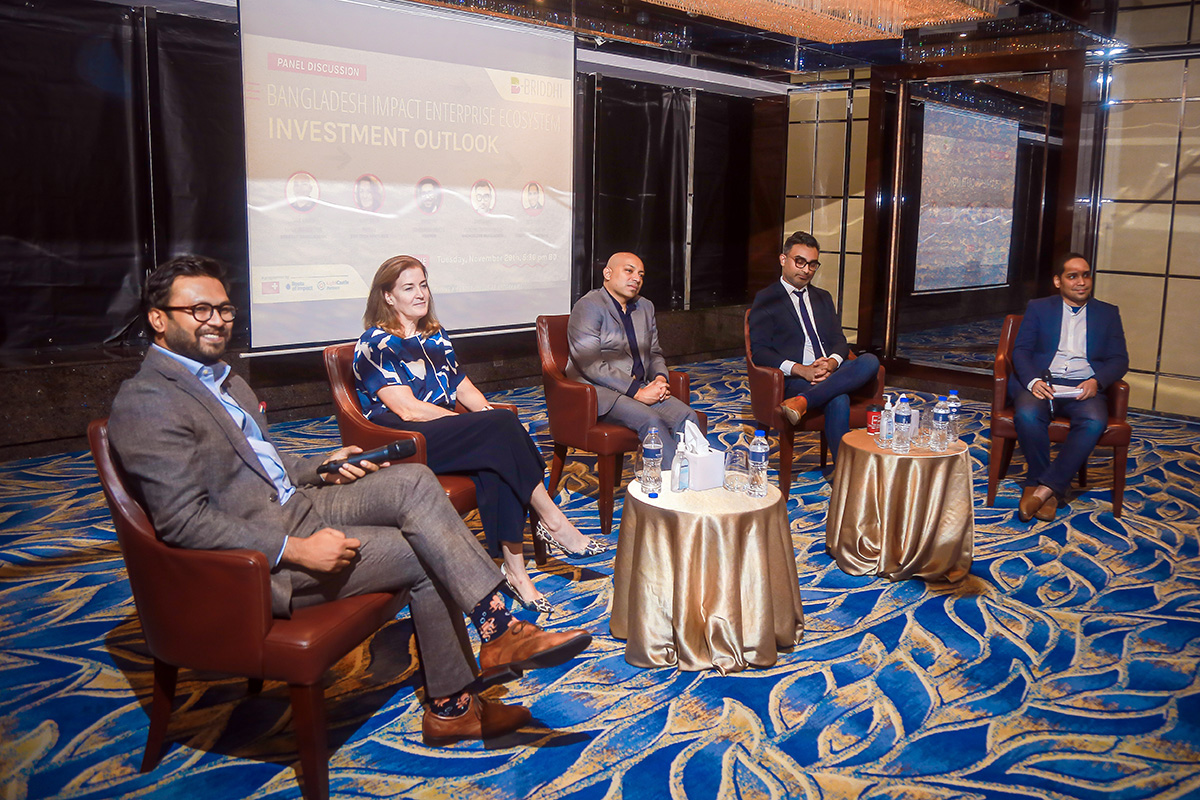
To facilitate both entrepreneurs and investors to speak the same “impact language”, the panel discussion set the stage by using the first three dimensions of the IMP framework. Moderated by Bijon Islam, CEO and Co-founder of LightCastle Partners, the panelists were:
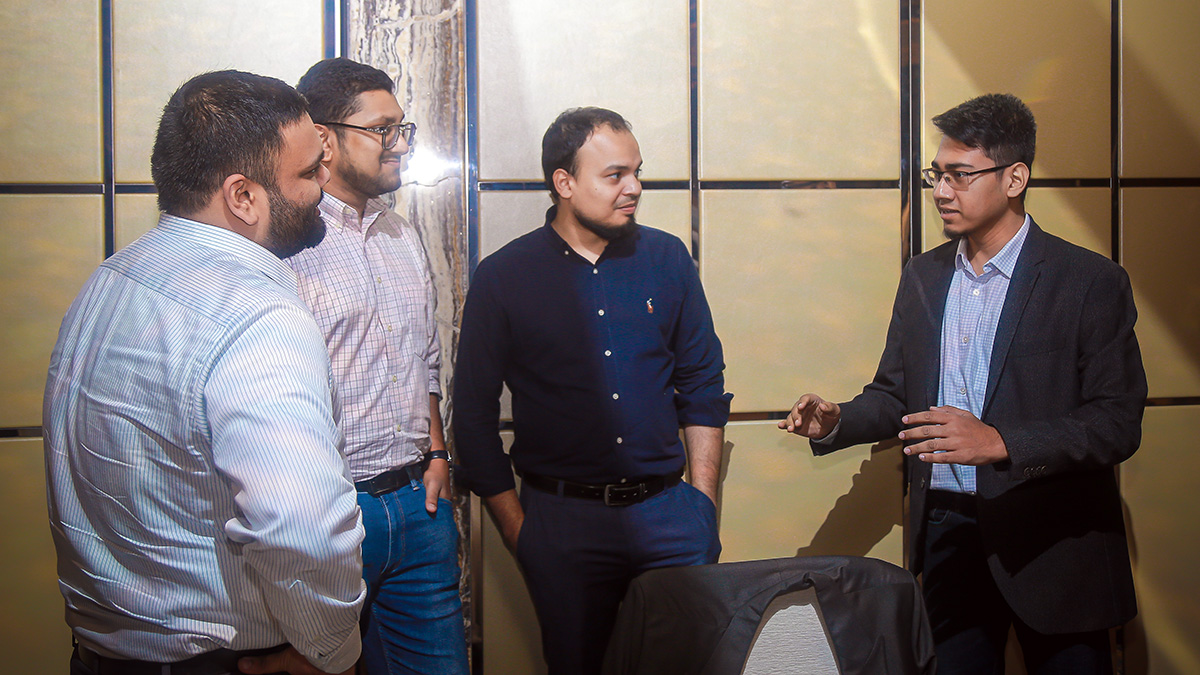
One of the sentiments echoed by all of the investors on the panel was that, in an emerging economy such as Bangladesh, it is difficult to have companies that do not generate at least some form of impact. However, if impact is generated as merely an accidental outcome without intentionality, this limits the possibility of achieving impact at scale. Thus, it is important to ask the “who” question and see which target population is experiencing the impact.
If “impact” is the outcome that you are investing in, it is necessary to have a better idea of “what” kind of impact you are generating. What you don’t measure, you can’t manage, assess or scale.
Kerry Breen from SBK Tech Ventures mentioned that they refer to the United Nations Sustainable Development Goals (SDGs) to align with their entrepreneurs the category of impact in the discussion. It is often helpful to break it down further and understand how the impact is translated on the end-user level, and what kind of changes are being experienced. The better you know about your customer’s relationship to your products or services, the better you are able to adjust and deliver suitable solutions.
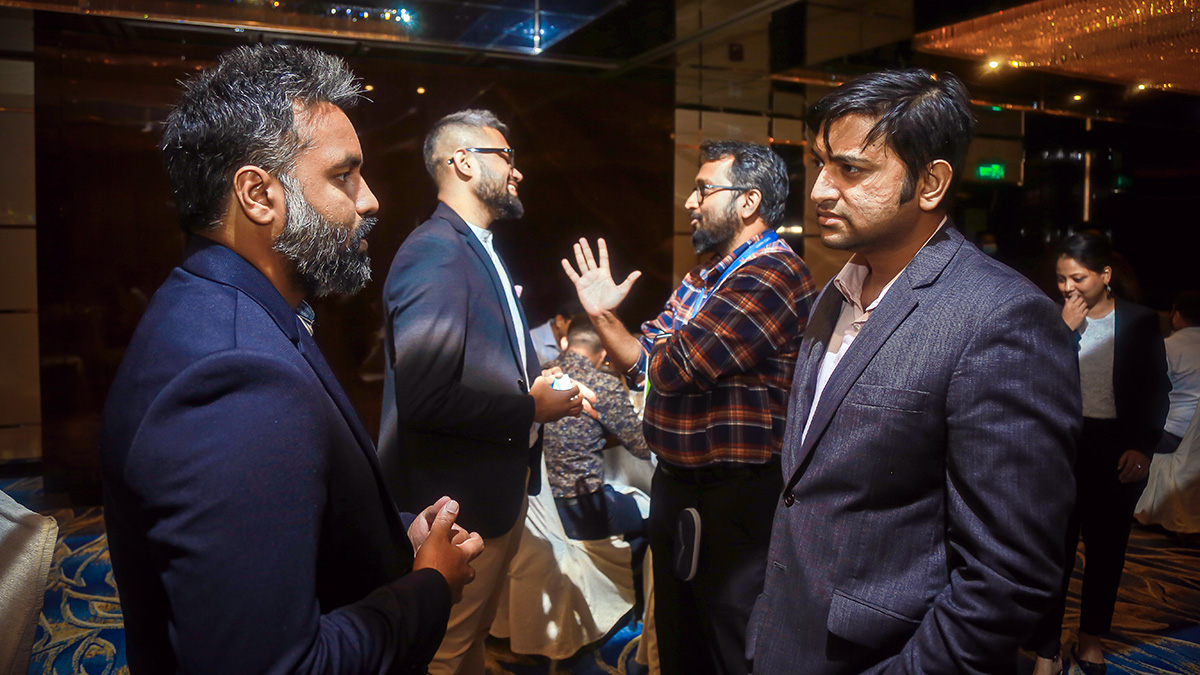
Measuring impact and linking it to financial returns is where many investors and entrepreneurs still struggle. Startup Bangladesh Limited and SBK Tech Ventures, two of the biggest investors in the country, are still in the process of developing ways to measure impact and link them to Key Performance Indicators (KPIs) which feed into the financial returns. Currently, SBK Tech Ventures sets up KPIs for each enterprise based on the type of impact they are setting out to make and assigns a third-party company to evaluate the KPIs.
Measuring the output level data (e.g. number of people reached/served) is certainly a good start. However, to create a more accurate understanding of the level of impact created, B-Briddhi focuses on outcome-level metrics (e.g. health outcome improvement experienced by customers). Then, financial incentives are directly linked to outcome-level performance for the catalytic financing transactions that B-Briddhi provides.
While impact investing remains a nascent landscape in Bangladesh, the CEO of iFarmer Fahad Ifaz emphasized the importance of investing in the impact measurement and management capacity of the company. For impact enterprises, it is key to invest in resources to identify and quantify their impact. This may require setting- up and developing the capacity of a team dedicated to impact measurement at the company level.
As also verified by recent research, investors do indeed care about impact when it comes to their investment decisions. Yet they need to care more and plan better on how to optimize the impact. A crucial step on this journey is finding a framework to evaluate HOW MUCH impact is being made by the enterprise. B-Briddhi can support this step: by equipping the ecosystem with knowledge and skills in identifying, collecting, and measuring meaningful impact data. The networking event served as a great opportunity for venture capitalists, angel investors, banks, financial institutions, ecosystem builders, and startups, to collaborate, discuss and reflect on the importance of defining and measuring impact. Let’s get serious about the impact of impact investing.
To read a more in-depth account of the event, navigate to the following knowledge piece on “B-Briddhi Hosts Networking Event To Deep Dive into the Impact in Impact Investing”, at the B-Briddhi website.
Our experts can help you solve your unique challenges